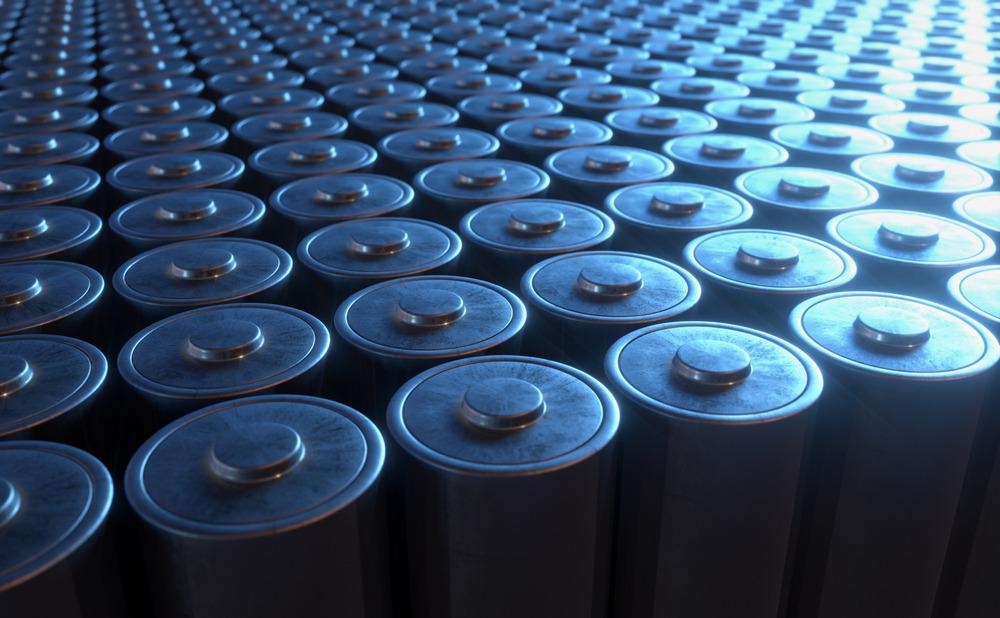A novel study in the journal ACS Applied Energy Materials is focused on the fabrication of a system that enables recovery of Lithium ions via a special electrochemical cell termed as Hybrid Capacitive Deionization Cell (HCDC).

Study: Fabricating a Flow-Through Hybrid Capacitive Deionization Cell for Selective Recovery of Lithium Ions. Image Credit: ktsdesign/Shutterstock.com
Importance and Utilization of Lithium
Lithium is characterized as the element with the lowest density in all of the known metals. It is widely utilized for metallurgical purposes and in the Aerospace industry. The other most important usages include rechargeable batteries for mobile phones, laptops, digital cameras, and electric vehicles.
Lithium-Ion Batteries (LIBs)
According to the research, lithium-ion batteries are lithium’s most popular use and have been commercialized on a vast scale for the past few years. Lithium, sometimes known as "white petroleum," is a critical and necessary component of LIBs. According to the most recent cumulative statistics, the available world lithium resources would be depleted by 2025.
Lithium-Ion Batteries (LIBs) are made up of two electrode materials in which Li+ ions are reversibly intercalated back and forth, giving electrical power to an external circuit. The novel study has indicated that the demand for LIBs has increased tremendously in the past few years due to its various advantages.
Advantages, Disadvantages, and Limitations of LIBs
The LIBs are highly advantageous due to their high operational energy densities, low maintenance costs and schedule, higher voltage, variety of shapes, and good load characteristics. However, it is to be noted that LIBs are not as robust as other batteries and extensive protection is a necessity that increases its cost. One of the most significant lithium-ion battery drawbacks for consumer gadgets is that lithium-ion batteries age. This is based not just on the time or calendar, but also on the number of charge-discharge cycles.
Lithium Extraction/Mining
To fulfill the drastically growing demand for lithium, it is crucial to establish low-cost lithium extraction/separation technologies with excellent extraction yield and sensitivity. This is because classical methods such as adsorption methods, solvent extraction, and other methods have their limitations.
Limitations of Lithium Recovering Methods
One of the famous classical methods in most cases involves the use of hazardous organic solvents in solvent extraction for lithium separation. Furthermore, the increased cost of separating membranes required for the procedure restricts the scale-up uses of the adsorption method. Capacitive Deionization (CD) has also been developed, but it is not suitable for the recovery of lithium ions in a water environment containing a variety of ions, especially cations.
Hybrid Capacitive Deionization (HCDI)
Hybrid capacitive deionization (HCDI) can be collections via Faradaic mechanisms (i.e., reversible redox reactions), in which the Faradaic electrode uptakes/releases cations. To overcome all the previous limitations for lithium recovery, an "all-in-one" electrochemical system with simple operation that merged the flow-through system and the hybrid capacitive deionization device was developed.
More on Li-Ion Batteries: Fabrication and Sintering of Ceramic Electrodes Used in Li-Ion Batteries
In the process, the flow through the HCDI cell was initiated with an anion exchange membrane (AEM). The anion exchange membrane keeps cations from adsorbing on the AC electrode. When a steady voltage was maintained, the Li+ ions in the feed would migrate through the Faradaic process, whereas the Cl anions would be collected by the AC electrode. The lithium content in the input water would be reduced throughout this operation.
Research Findings
Several critical factors, including applied voltage, rate of flow, and concentration, were examined to maximize the HCDI system's Li-selective removal performance.
According to the research, when the voltage was supplied, the lithium adsorption capacity rose noticeably. Furthermore, when the applied electrical potential was increased, the adsorption capacity also increased. When the trade-off between energy consumption and adsorption capacity is considered, an applied voltage of 1.0 V is ideal. The process was stable with ion adsorption of about 90%.
These findings clearly show that this HCDI technique is reversible and may be utilized frequently for lithium-ion recovery.
Limitation and Future Perspectives
Along with Li-ion extraction, HCDI could effectively be used for the desalination process too. It is predicted to have a high rate of ion removal and great durability. It could effectively be used to increase the efficiency and capacity of Capacitive deionization techniques. However, it is a very novel technique and a lot of research is still needed to completely study its intricacies. The inability to filter out harmful substances such as viruses, etc. is a major drawback.
To summarize, Li-ion extraction is an essential process and the HCDI technique that is highly stable has been proposed and developed, which has been successfully proved to recover lithium ions from aqueous solutions.
References
Xie, N., Li, Y., Yuan, Y., Gong, J., & Hu, X. (2021). Fabricating a Flow-Through Hybrid Capacitive Deionization Cell for Selective Recovery of Lithium Ions. ACS Applied Energy Materials. https://pubs.acs.org/doi/10.1021/acsaem.1c02654
Disclaimer: The views expressed here are those of the author expressed in their private capacity and do not necessarily represent the views of AZoM.com Limited T/A AZoNetwork the owner and operator of this website. This disclaimer forms part of the Terms and conditions of use of this website.